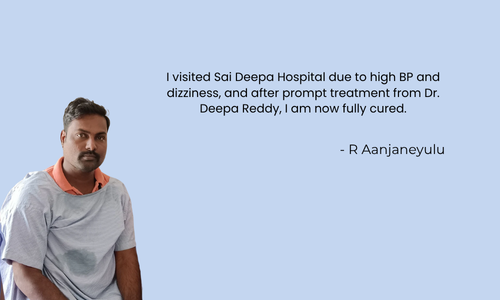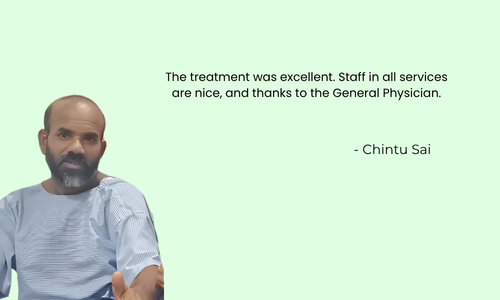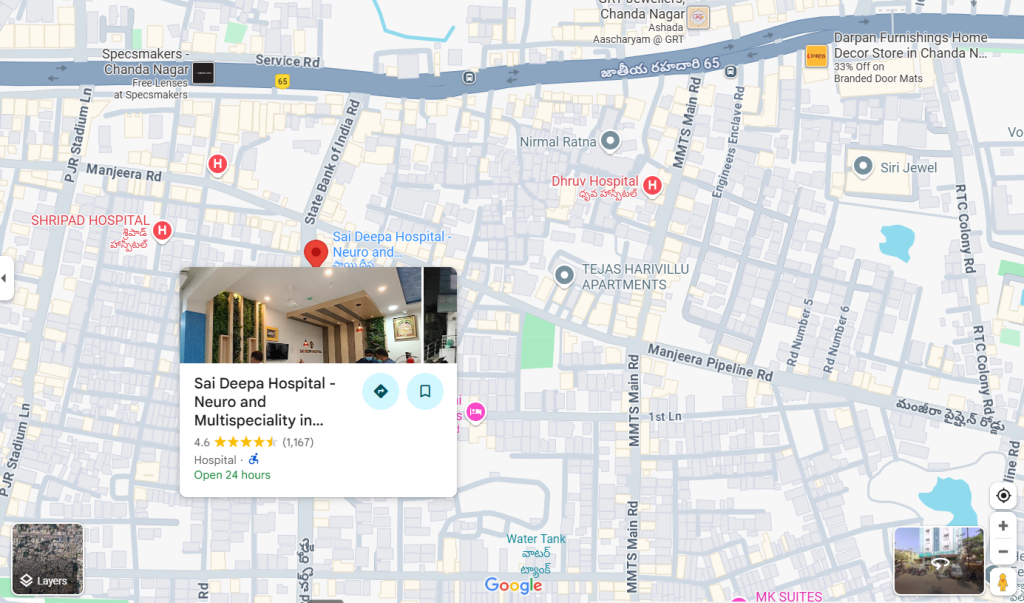Best Ulcer Treatment in Hyderabad
- Home
- Best Ulcer Treatment in Hyderabad
Best Ulcer Treatment in Hyderabad
Ulcers are among the most common yet often misunderstood medical conditions that affect millions worldwide. They can develop in different parts of the body, most commonly in the stomach, small intestine, esophagus, skin, and feet. While many ulcers are treatable with medication and lifestyle changes, untreated ulcers may lead to severe complications. Understanding ulcers, their causes, and the available treatments helps patients seek timely medical care and prevent long-term health risks.
Book Free Appointment
1L+
Happy Customers
25+
Qualified Doctors
50
Rooms
5000+
Successful Surgeries
Free
Consultation
24/7 Ambulance
Facility
Insurance
Claim Support
What are Ulcers?
Ulcers are open sores or breaks in the skin or mucous membrane that fail to heal properly. They can occur internally, such as in the digestive tract, or externally, such as on the skin or feet. The most common types include:
Peptic Ulcers – Sores in the lining of the stomach, esophagus, or small intestine.
Mouth Ulcers – Painful sores inside the mouth.
Venous Ulcers – Open wounds that develop on the legs due to poor circulation.
Diabetic Foot Ulcers – Common in people with diabetes, often appearing on the feet.
Pressure Ulcers (Bedsores) – Caused by prolonged pressure on the skin, common in bedridden patients.
Each type of ulcer has unique causes and requires specific treatment, but they all share one common feature they represent a breakdown in tissue that demands medical attention.

Dr. Sasidhara Roa A
MBBS, MS
5000+ Successful Surgeries
11+ Years of experience
Dr. Sasidhara Rao A. is an experienced General and Laparoscopic Surgeon at Sree Sai Deepa Hospitals, Chandanagar, with over 11 years of expertise and 5000+ successful surgeries. He specializes in laparoscopic, laser, and microscopic surgeries, treating conditions like piles, fissures, varicose veins, and gallbladder issues.
Doctor’s Fellowships:
Fellowship - International Society of Coloproctology
Fellowship in Intimate Health
Fellowship in Diagnostic Endoscopy
How Many Types of Ulcers Are There?
Ulcers are classified into several types based on their location and underlying cause. The main types include:
Peptic Ulcers
Gastric Ulcers (in the stomach)
Duodenal Ulcers (in the small intestine)
Esophageal Ulcers (in the esophagus)
Mouth Ulcers (Canker Sores)
Aphthous ulcers
Traumatic ulcers
Skin Ulcers
Venous ulcers (poor blood flow)
Arterial ulcers (poor oxygen supply)
Pressure ulcers (bedsores)
Diabetic Foot Ulcers
A complication of uncontrolled diabetes.
By understanding these types, patients and caregivers can better recognize symptoms and seek early treatment.
What Causes Ulcers?
The causes of ulcers vary depending on the type, but the most common reasons include:
Helicobacter pylori infection – A major cause of peptic ulcers.
Excess stomach acid production – Often due to stress, smoking, or diet.
Long-term use of NSAIDs (painkillers like ibuprofen or aspirin).
Poor circulation – Leading to venous or arterial ulcers.
Diabetes – A primary factor in diabetic foot ulcers.
Trauma or injury – Cuts, burns, or pressure on the skin can trigger ulcers.
Lifestyle habits – Smoking, alcohol, and unhealthy diets increase risks.
Are Ulcers Normal?
Occasional ulcers, such as minor mouth ulcers, are common and often heal on their own. However, frequent or persistent ulcers are not normal and may indicate an underlying health issue that requires treatment. Ignoring ulcers can lead to infection, bleeding, and severe complications.
Get your surgery cost
What are the Symptoms of Ulcers?
Symptoms differ depending on the type of ulcer but may include:
Persistent pain or burning sensation (especially in the stomach).
Redness, swelling, or open wounds (skin ulcers).
White or yellowish patches inside the mouth (mouth ulcers).
Difficulty eating, indigestion, or bloating (peptic ulcers).
Fluid discharge or pus from chronic skin ulcers.
Non-healing wounds on feet (diabetic ulcers).
How Do Ulcers Develop?
Ulcers form when tissue becomes damaged and fails to heal properly. For example:
In peptic ulcers, stomach acid erodes the protective lining of the stomach or intestine.
In skin ulcers, reduced blood supply prevents wounds from closing.
In diabetic ulcers, nerve damage and poor circulation delay healing.
Without timely care, these open sores enlarge, become infected, and may even require surgical intervention.
Accreditations

Saideepaneurocare Hospitals is NABH certified, a mark of excellence in patient safety and care. We follow stringent healthcare protocols and maintain world-class hygiene standards.

We are ISO 9001 certified, ensuring the highest standards in quality management and patient care. This certification reflects our commitment to efficient processes and continuous improvement in healthcare services.
When is an Ulcer Considered Serious?
An ulcer is serious if:
It causes severe or persistent pain.
Bleeding occurs (vomiting blood, blood in stool, or pus discharge).
It does not heal within two weeks.
It becomes infected (redness, swelling, or foul odor).
It leads to difficulty eating or walking (depending on location).
Prompt medical care is crucial in such cases to prevent life-threatening complications.
How Can Ulcers Be Diagnosed?
Doctors use various diagnostic methods depending on the ulcer’s location:
Endoscopy – For stomach and intestinal ulcers.
Biopsy – To rule out cancer in suspicious ulcers.
Blood tests & Stool tests – To check for infections like H. pylori.
Doppler ultrasound or angiography – To assess blood circulation in venous or arterial ulcers.
Clinical examination – For skin and diabetic ulcers.
Accurate diagnosis ensures the right treatment plan.
What are the Treatments for Ulcers?
Treatment depends on the type of ulcer but often includes:
Medications
Antibiotics (for H. pylori infection).
Proton pump inhibitors (to reduce stomach acid).
Pain relievers and healing creams (for skin ulcers).
Lifestyle Changes
Healthy diet, quitting smoking, and reducing alcohol.
Weight management and regular exercise.
Wound Care
Cleaning and dressing ulcers regularly.
Preventing pressure ulcers with proper repositioning.
Diabetes Management
Controlling blood sugar to prevent diabetic ulcers.
Sai Deepa Hospital - Neuro and Multispeciality
Plot no 387, Church road, Huda colony, Chanda Nagar, Hyderabad – 500050
What are the Surgical Options for Ulcers?
Surgery may be necessary if:
The ulcer does not heal with medication.
Severe bleeding occurs.
Perforation (a hole in the stomach or intestine) develops.
Skin ulcers worsen despite wound care.
Surgical treatments may involve removing the ulcer, repairing damaged tissues, or improving blood flow with bypass surgery.
What Happens if Ulcers Are Left Untreated?
Untreated ulcers can lead to severe complications, including:
Internal bleeding.
Perforation of the stomach or intestines.
Infections spreading to surrounding tissues.
Amputations in diabetic ulcers.
Increased risk of cancer in chronic ulcers.
This is why seeking timely medical care is essential.
How Can I Prevent Ulcers?
Prevention strategies include:
Eating a balanced diet with fiber-rich foods.
Avoiding excessive use of painkillers.
Quitting smoking and limiting alcohol.
Managing chronic conditions like diabetes and hypertension.
Maintaining good hygiene and wound care practices.
Regular health check-ups to detect early signs.
Which is the Best Hospital for Ulcers Treatment in Hyderabad
Ulcers may seem minor at first, but if left untreated, they can lead to serious health issues. Recognizing symptoms early and seeking medical attention ensures proper treatment and prevents complications. Whether it’s a stomach ulcer, mouth ulcer, or diabetic foot ulcer, timely care makes all the difference.
At Sai Deepa Hospitals, our team of specialists provides advanced treatments for ulcers with a patient-first approach. From accurate diagnosis to personalized care, we are committed to helping you heal and restore your quality of life.
Where to get the best Ulcers Treatment in Chandanagar, Hyderabad?
📍 Sai Deepa Hospitals, Chanda Nagar, Hyderabad
📞 Call or WhatsApp: +91-7093762716
🌐 www.saideepaneurocare.com
Best Ulcers Treatment Doctor in Chandanagar | Best Ulcers Treatment Doctor in Miyapur | Best Ulcers Treatment Doctor in Kukatpally | Best Ulcers Treatment Doctor in Hyderabad
Patient Reviews



FAQ's on Ulcer Treatment
1. How painful are ulcers?
Pain levels vary. Stomach ulcers cause burning or gnawing pain, while skin ulcers may cause throbbing or sharp pain. Untreated ulcers usually worsen over time.
2. What is the main cause of ulcers?
The primary cause is infection by H. pylori bacteria or long-term use of NSAIDs. Poor circulation and diabetes are also common triggers.
3. Can ulcers heal on their own?
Minor mouth ulcers often heal naturally, but most ulcers need medical care to prevent complications.
4. What happens if ulcers are not treated?
They can lead to infections, internal bleeding, and in severe cases, life-threatening complications.
5. Do ulcers always require surgery?
No. Many ulcers heal with medicines and lifestyle changes, but chronic or complicated ulcers may need surgical intervention.
6. Are ulcers common in diabetes patients?
Yes. Diabetic foot ulcers are one of the most frequent and dangerous complications of diabetes.
7. Can stress cause ulcers?
Stress alone does not cause ulcers but can worsen existing ones by increasing stomach acid production.


